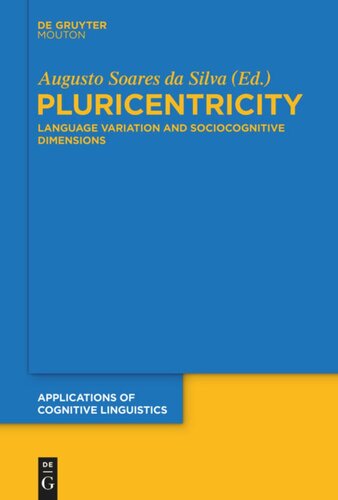

Most ebook files are in PDF format, so you can easily read them using various software such as Foxit Reader or directly on the Google Chrome browser.
Some ebook files are released by publishers in other formats such as .awz, .mobi, .epub, .fb2, etc. You may need to install specific software to read these formats on mobile/PC, such as Calibre.
Please read the tutorial at this link: https://ebookbell.com/faq
We offer FREE conversion to the popular formats you request; however, this may take some time. Therefore, right after payment, please email us, and we will try to provide the service as quickly as possible.
For some exceptional file formats or broken links (if any), please refrain from opening any disputes. Instead, email us first, and we will try to assist within a maximum of 6 hours.
EbookBell Team

4.4
82 reviewsThe "one-nation-one-language" assumption is as unrealistic as the well-known Chomskyan ideal of a homogeneous speech community. Linguistic pluricentricity is a common and widespread phenomenon; it can be understood as either differing national standards or differing local norms. The nine studies collected in this volume explore the sociocultural, conceptual and structural dimensions of variation and change within pluricentric languages, with specific emphasis on the relationship between national varieties. They include research undertaken in both the Cognitive Linguistic and socolinguistic tradition, with particular emphasis upon the emerging framework of Cognitive Sociolinguistics. Six languages, all more or less pluricentric, are analyzed: four Germanic languages (English, German, Dutch and Swedish) and two Romance languages (Portuguese and French). The volume describes patterns of phonetic, lexical and morphosyntactic variation, and perception and attitudes in relation to these pluricentric languages. It makes use of advanced empirical methods able to account for the complex interplay between conceptual and social aspects of pluricentric variation and other forms of language-internal variation.